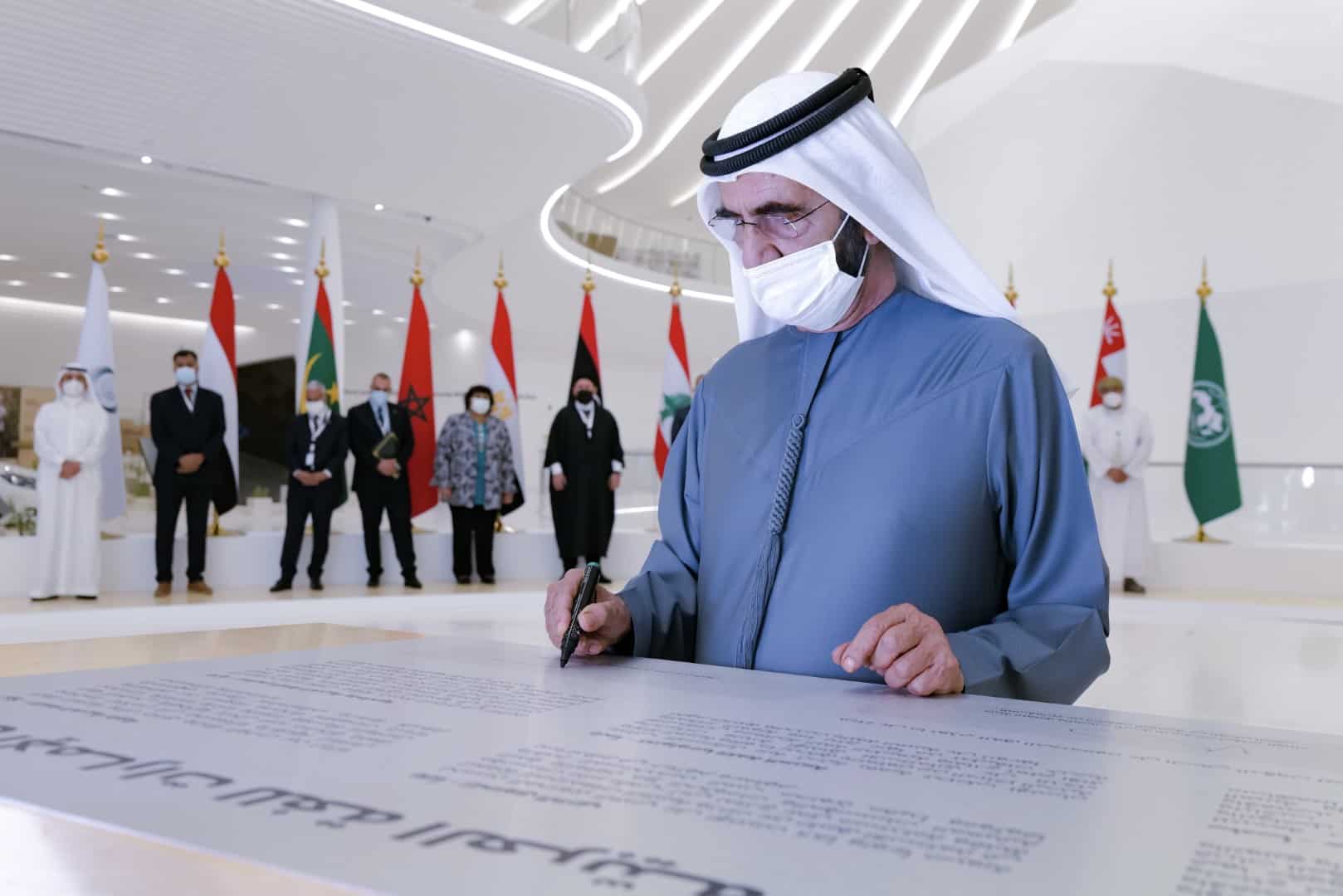Sheikh Mohammed bin Rashid Al Maktoum, Vice President and Prime Minister, on Tuesday launched the UAE Declaration of Arabic Language at Expo 2020 Dubai.
The declaration aims to draw out a unified roadmap for various institutions in Arab countries.
The declaration was introduced in the presence of the Arab Ministers of Culture to mark the World Arabic Language Day, and in parallel with the 22nd session of the Conference of Ministers Responsible for Cultural Affairs in the Arab World.
Sheikh Mohammed said, “The Arabic language is a language of beauty, culture, and civilization and one summit is certainly not enough.
It is our declaration to commit to working together to enhance the status of the language that represents our identity, culture, and science.”
Noura bint Mohammed Al Kaabi, Minister of Culture and Youth and Chair of the 22nd session of the Conference of Ministers Responsible for Cultural Affairs in the Arab World said the first edition of the report on the Status and Future of the Arabic Language revealed the need for greater cooperation and better coordination between Arab nations through proper language planning and joint Arab action.
“Today we are taking an important step in that direction to implement the recommendations of the report by launching the UAE Arabic Language Declaration, which represents a comprehensive roadmap covering all areas related to the Arabic language,” she said.
She added, “The UAE Arabic Language Declaration is a reference for officials in Arab countries to launch initiatives and projects that preserve the Arabic language, enhance its presence globally and encourage its use among future generations. It also promotes the use of Arabic in the digital space, and associated industries while encouraging the use of technology in education and the spread of the Arabic language.”
Last year, the Ministry of Culture and Youth launched a study into the status and future of the Arabic language to compile a report with the participation of 15 media organizations, 10 language universities and 18 universities and 65 educational institutions from around the world contributed to the report.

